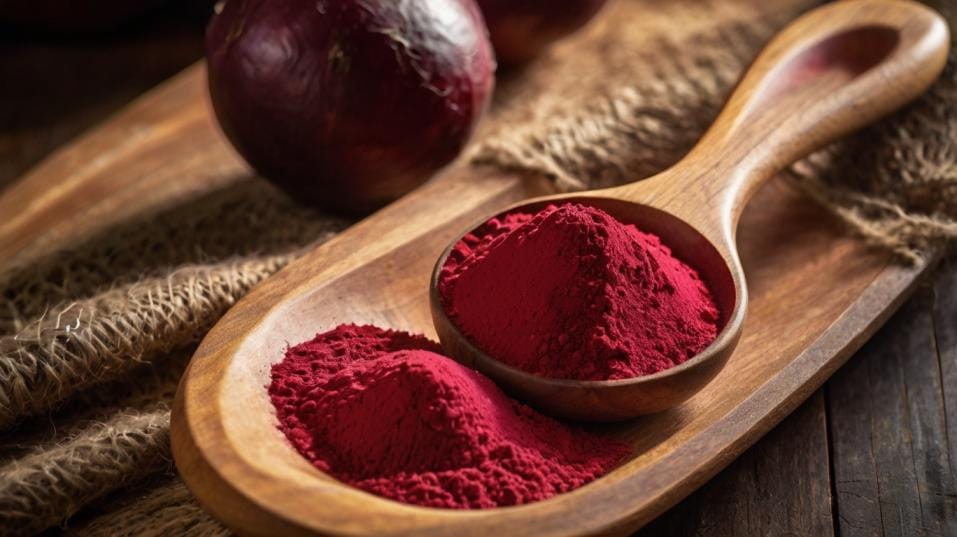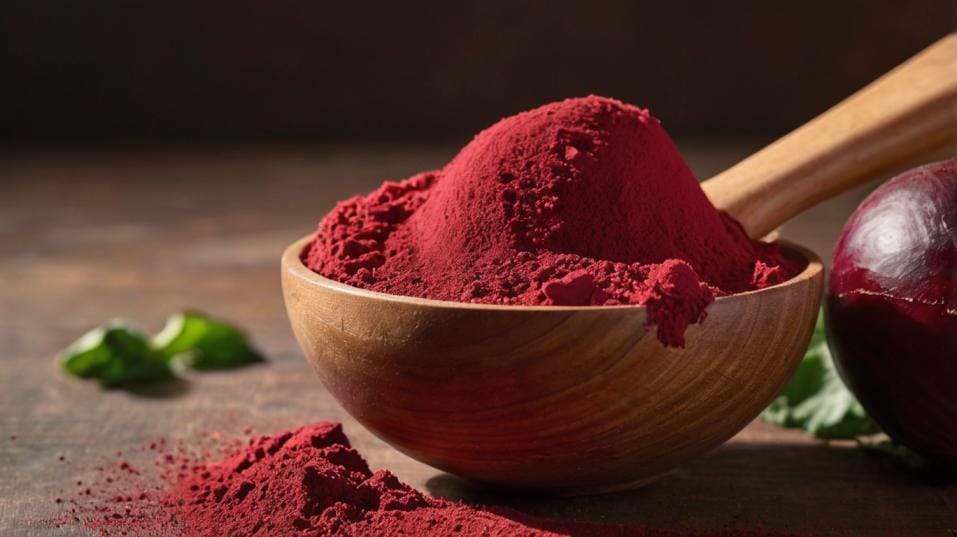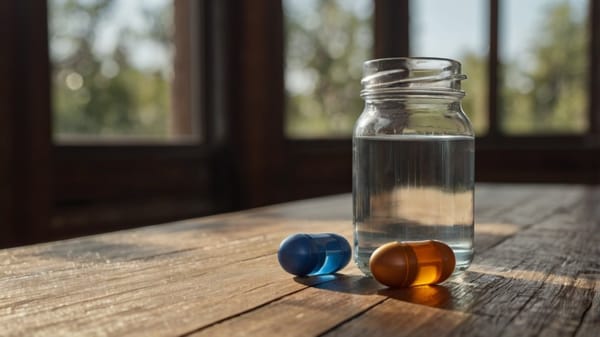Exactly When to Take Beetroot Powder for Best Results
Beetroot powder boosts energy, focus, and circulation—if you time it right. Learn exactly when to take it for the strongest results.

Ever feel like your energy’s fading faster than it used to—physically or mentally? You’re not alone. When blood flow slows and stamina dips, beetroot powder can help flip the switch and restore natural energy.
This isn’t just another supplement trend—it’s a nitric oxide booster that can seriously improve how you feel and perform. But here’s the kicker: timing matters more than you think. Take it at the right moment, and the results hit harder.
What Makes Beetroot Powder Work?
Before diving into timing, it helps to know what beetroot powder is doing under the hood.
Beets are packed with nitrates. Once ingested, your body converts those nitrates into nitric oxide—a molecule that relaxes and widens your blood vessels, increasing oxygen delivery to your muscles, brain, and organs.
What does that mean for you?
- More endurance during physical activity
- Sharper focus and mental clarity
- Better circulation and cardiovascular support
- Improved stamina for everyday life
But nitric oxide isn’t stored long-term. It peaks a few hours after you take it, then drops. That’s why timing is the real game-changer.

Best Time to Take Beetroot Powder for Energy & Workouts
Want to feel unstoppable during a workout or power through a long day? Timing your beetroot powder is essential. Take it 2 to 3 hours before exercise.
Why? Because that’s when nitric oxide levels hit their peak. Whether you're lifting weights, walking, biking, or just trying to feel more alive during your daily grind, this window gives you the best shot at feeling the difference.
Even if you're not exercising, this timing still works. If you're dragging through your mornings or losing steam mid-afternoon, taking beetroot powder between 7 a.m. and 9 a.m. can give you a noticeable lift in energy and clarity.
Pro Tip:Stack it with matcha or L-theanine for a clean, sustained energy boost that’s smooth—not jittery.
Best Time for Blood Pressure and Circulation
Beetroot powder isn’t just a performance hack—it’s also a powerful daily ritual for heart health. Take it in the morning, ideally within an hour of waking up.
Here’s why: Your blood pressure naturally spikes in the morning (a phenomenon known as the “morning surge”). A dose of beetroot powder can smooth out that spike, keeping your vascular system in better balance throughout the day.
You won’t necessarily feel this effect immediately, but over time, your cardiovascular system will thank you.
Bonus Tip:Beetroot is also rich in antioxidants like betalains, which help fight inflammation—a silent contributor to poor circulation.
Best Time to Take It for Brain Benefits
If your mind feels foggy or less sharp than usual, you’re not alone. Reduced blood flow to the brain can be a hidden cause—but beetroot powder helps reverse that. But beetroot powder can help reverse that trend.
Studies show that nitrates increase blood flow specifically to the prefrontal cortex—the brain region responsible for memory, focus, and decision-making. So when should you take it? Take it 1 to 2 hours before mentally demanding tasks.
That could be before a big meeting, a writing session, or even just reading a challenging book. Morning to early afternoon works best here.
Avoid late-day doses if you’re planning to relax or head to bed. A boosted brain might be a little too switched on.
What About Recovery and Longevity?
While beetroot powder is known for performance, it also supports post-workout recovery and cellular health—thanks to its anti-inflammatory and antioxidant profile.
If you’re less focused on workouts and more focused on long-term wellness or daily recovery:
Take it with your first meal of the day. This helps you build a consistent rhythm and gives your body daily nitrate support, which accumulates over time for better blood flow and endurance.
Should You Take It on an Empty Stomach?
Yes—but with a caveat. Beetroot powder absorbs quickly on an empty stomach, which is why many people take it first thing in the morning. If you’re chasing max results, that’s the move.
But if you have a sensitive gut or experience any discomfort, just take it with a light breakfast. You’ll still get the same core benefits—no need to suffer for results.
How Often Should You Take Beetroot Powder?
Daily. Every single day. Beetroot powder works best when it becomes part of your routine. Think of it like brushing your teeth—you’re not doing it for instant results, you’re doing it to stay optimized.
One scoop per day is enough. You don’t need to double-dose or megadose. Consistency beats quantity.
Want to go next-level? Split your dose:
- Half in the morning for blood flow and brain function
- Half 2–3 hours before a workout for performance It’s optional, but useful if you’re chasing a specific edge.
What to Stack with Beetroot Powder
Looking to upgrade your supplement game? Beetroot powder stacks well with other performance-enhancing and longevity-boosting compounds:
- L-citrulline or L-arginine – Boosts nitric oxide production even further
- Creatine – For power, recovery, and strength
- Cordyceps or Rhodiola Rosea – For clean energy and resilience
- CoQ10 – For mitochondrial support and cellular energy
- Matcha or green tea extract – For cognitive focus and sustained alertness
Just keep your stack simple. No need to overcomplicate—start with beetroot, then layer in only what makes sense for your goals.
Final Thoughts: Start Now and Feel the Shift
If you're tired of dragging through your days, if your workouts feel flat, or your mind feels foggy—the problem might be blood flow. Beetroot powder is a simple, natural way to turn that around.
But the key isn’t just taking it—it’s timing it right. Whether you want better workouts, clearer thinking, or more energy throughout the day, beetroot powder delivers when you do it consistently and strategically.
So start now. One scoop, the right time, every day. You’ll feel the difference when your body and brain are finally getting the oxygen and nutrients they’ve been missing.




